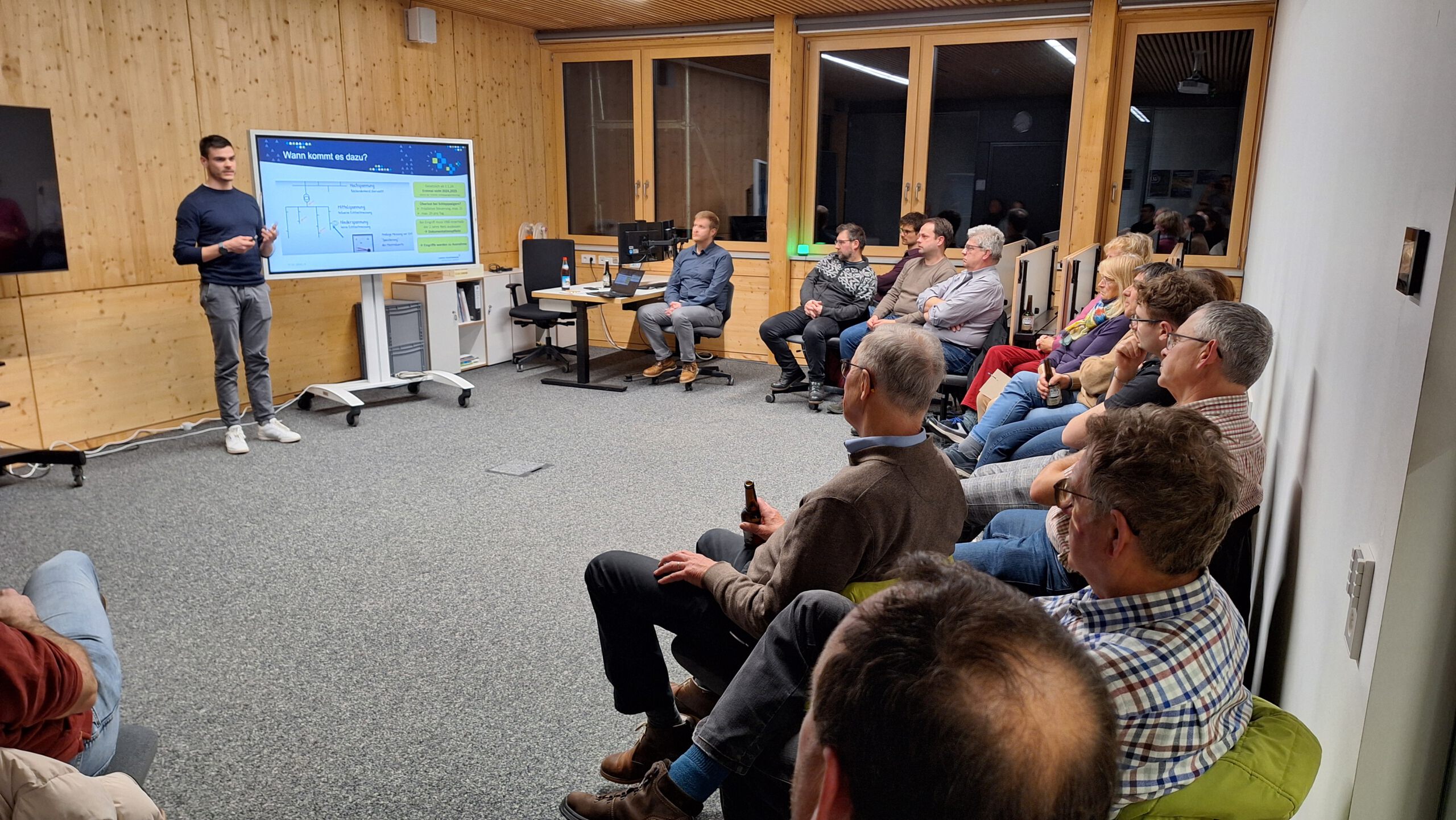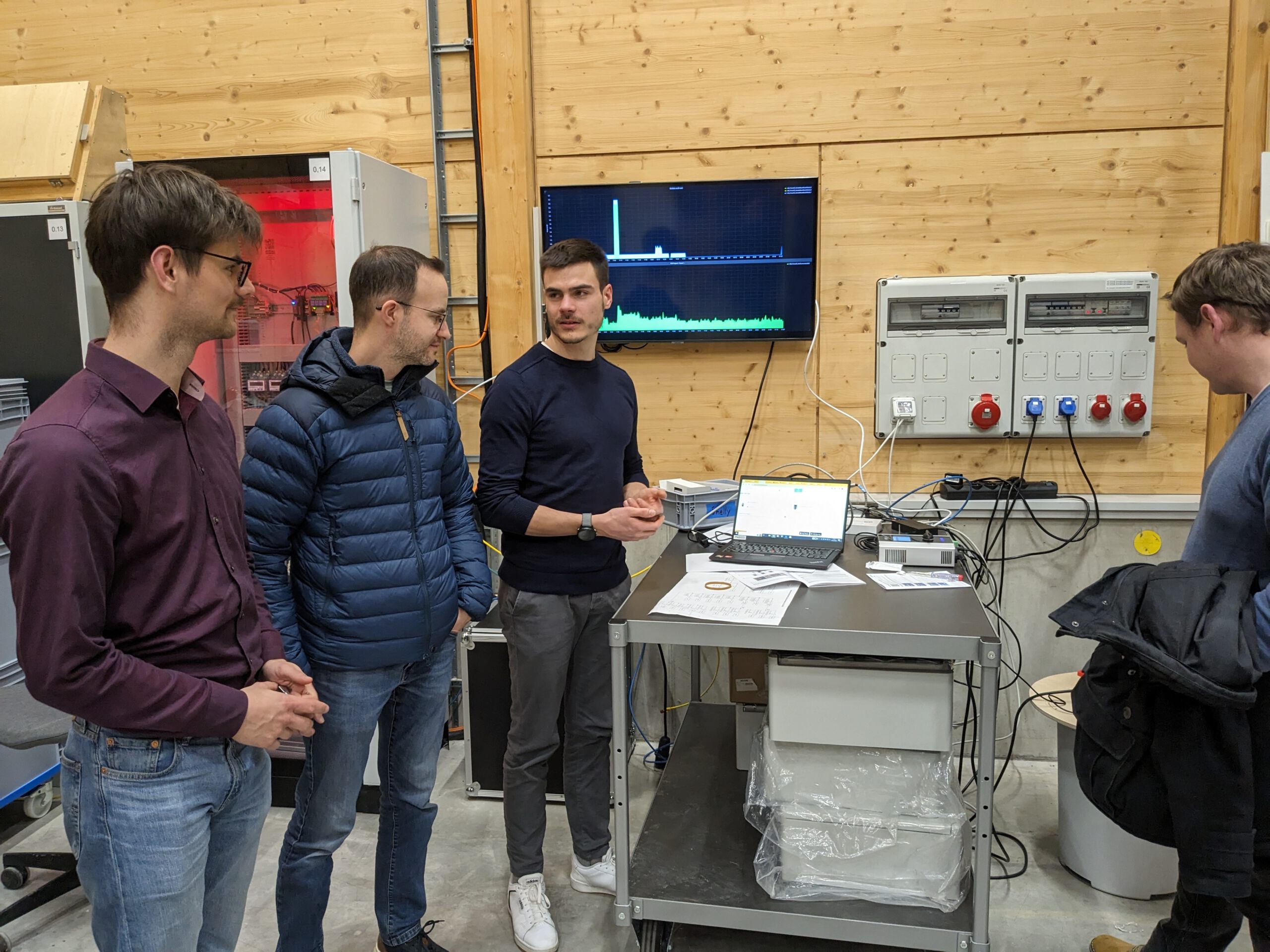About wallboxes, heat pumps & hydrogen
Energy talk at the Feuchtwangen campus kicks off the new year with a wealth of topics
On January 17, the Feuchtwangen campus kicked off the new year with a themed Energy Talk. The event was opened by Campus Coordinator Dr. Gerd Hofmann, who warmly welcomed the attendees and introduced the evening. The panel was completed by Thomas Haupt, M. Sc., research assistant and doctoral student as well as laboratory engineer Dipl.-Ing. Oliver Abel and research assistant Kevin Settler, B. Eng. Despite adverse weather conditions, around 20 guests and interested parties were not deterred from attending the event, which made for a lively evening with exciting presentations and lively discussions.
The evening began with a keynote speech by Thomas Haupt: “The increasing number of heat pumps and wallboxes is putting a strain on the distribution grids. The law on dimming heat pumps and wallboxes is clearly aimed at security of supply. Although potential interventions are theoretically possible, they are very unlikely for the time being. These must be recorded and will result in mandatory expansion.”
Haupt goes on to give the all-clear: “A reduction in output to 4.2 kW is only planned for a maximum of two hours per day. Most heat pumps have a connected load well below this and therefore continue to work unaffected. With wallboxes, only the charging speed is reduced.” With his presentation, he provided important insights into the current challenges in connection with the expansion of heat pumps and wallboxes.

After the introductory presentation, the participants discussed energy management systems and the optimization of their own electricity consumption. “The intelligent networking of components such as wallboxes, heat pumps as consumers and photovoltaic systems as generators is essential. Efficient integration cannot be guaranteed without sound specialist knowledge of the different types of communication and system compatibility,” summarizes Thomas Haupt.
Another question focuses on alternatives to heat pumps, particularly in older buildings. “Current heat pumps are powerful enough and reach sufficiently high temperatures. In conjunction with suitable radiators, they work very reliably,” says Dr. Gerd Hofmann. “Connecting to a local heating network can also be a sensible option. However, such networks are usually only economically viable in densely built-up areas with a high demand for heat. However, this could be an
Dipl.-Ing. Oliver Abel adds: “Before replacing a conventional heating system, you should think about measures to improve the building envelope. If the building envelope is only upgraded after a heat pump has been installed, the installed heat pump is oversized. A well-designed heat pump runs continuously over long periods of time with little cycling.”
In the discussion on hydrogen, it was quickly agreed that the potential lies primarily in industry and heavy goods traffic. “Hydrogen is still too valuable for private transport or for heating and will probably remain so,” Gerd Hofmann concludes.

The evening, which was filled with exciting topics and discussions, was rounded off with a tour of the energy management system in the research hall on the Feuchtwangen campus.
The next Energy Talk will take place on Wednesday, April 17 at 7 pm.
